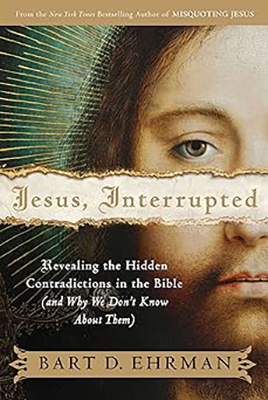Jesus, Interrupted
“Jesus, Interrupted: Revealing the Hidden Contradictions in the Bible (And Why We Don’t Know About Them)” is a book by Bart D. Ehrman, published in 2009. Here’s a summary:
In “Jesus, Interrupted,” Bart D. Ehrman, a prominent New Testament scholar, examines the inconsistencies and contradictions found within the Bible, particularly the New Testament. Ehrman argues that many people are unaware of these discrepancies because they have not been exposed to critical scholarship on the Bible.
The book begins by exploring the historical context in which the New Testament was written, emphasizing that the authors were fallible human beings who wrote from particular perspectives and theological agendas. Ehrman discusses how the texts of the New Testament were transmitted and edited over time, leading to variations and discrepancies in the manuscripts.
Ehrman then examines specific contradictions and inconsistencies within the New Testament, such as discrepancies in the birth narratives of Jesus, differences in the accounts of Jesus’ crucifixion and resurrection, and conflicting portrayals of Jesus’ teachings and actions. He argues that these discrepancies challenge the notion of the Bible as an infallible and internally consistent document.
One of the key themes of “Jesus, Interrupted” is the diversity of early Christian beliefs and practices. Ehrman highlights the existence of competing interpretations of Jesus’ life and teachings within the New Testament itself, as well as the existence of other Christian writings that were not included in the biblical canon.
Despite his critique of the Bible’s contradictions and inconsistencies, Ehrman emphasizes that the study of the Bible can still be a valuable and enriching endeavor. He encourages readers to approach the Bible with an open mind and a willingness to engage critically with its complexities, rather than accepting it uncritically as a source of absolute truth.
Overall, “Jesus, Interrupted” offers a thought-provoking exploration of the Bible’s textual and theological complexities, challenging readers to reconsider their assumptions about the nature of scripture and the origins of Christianity. Ehrman’s accessible writing style and scholarly expertise make the book an engaging and informative read for both believers and skeptics alike.

